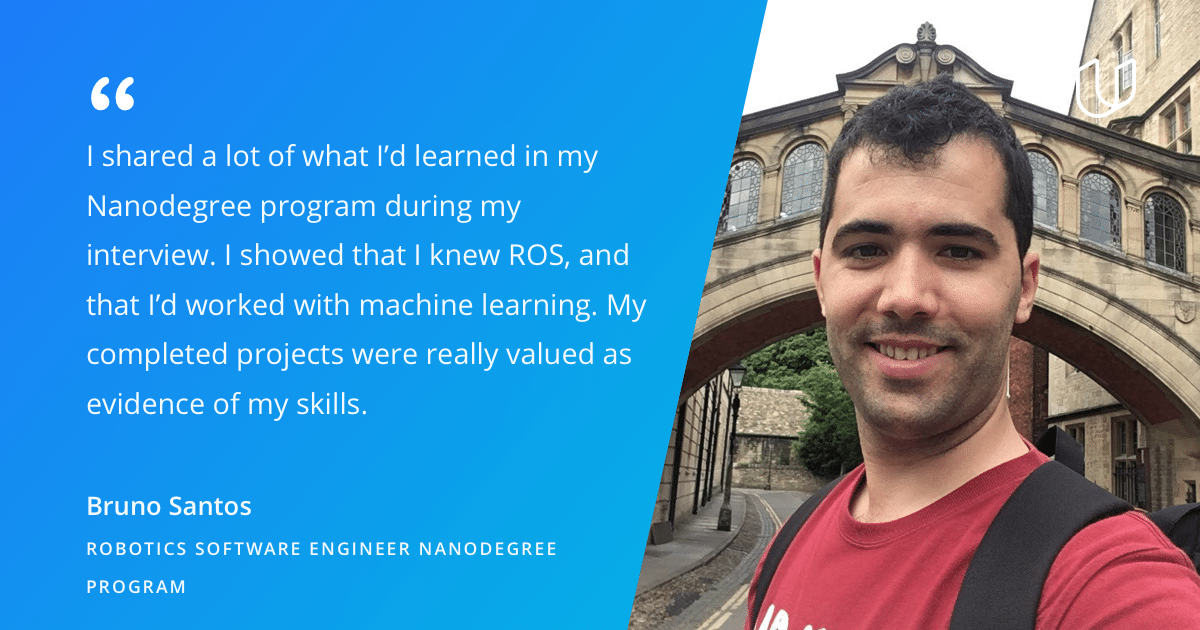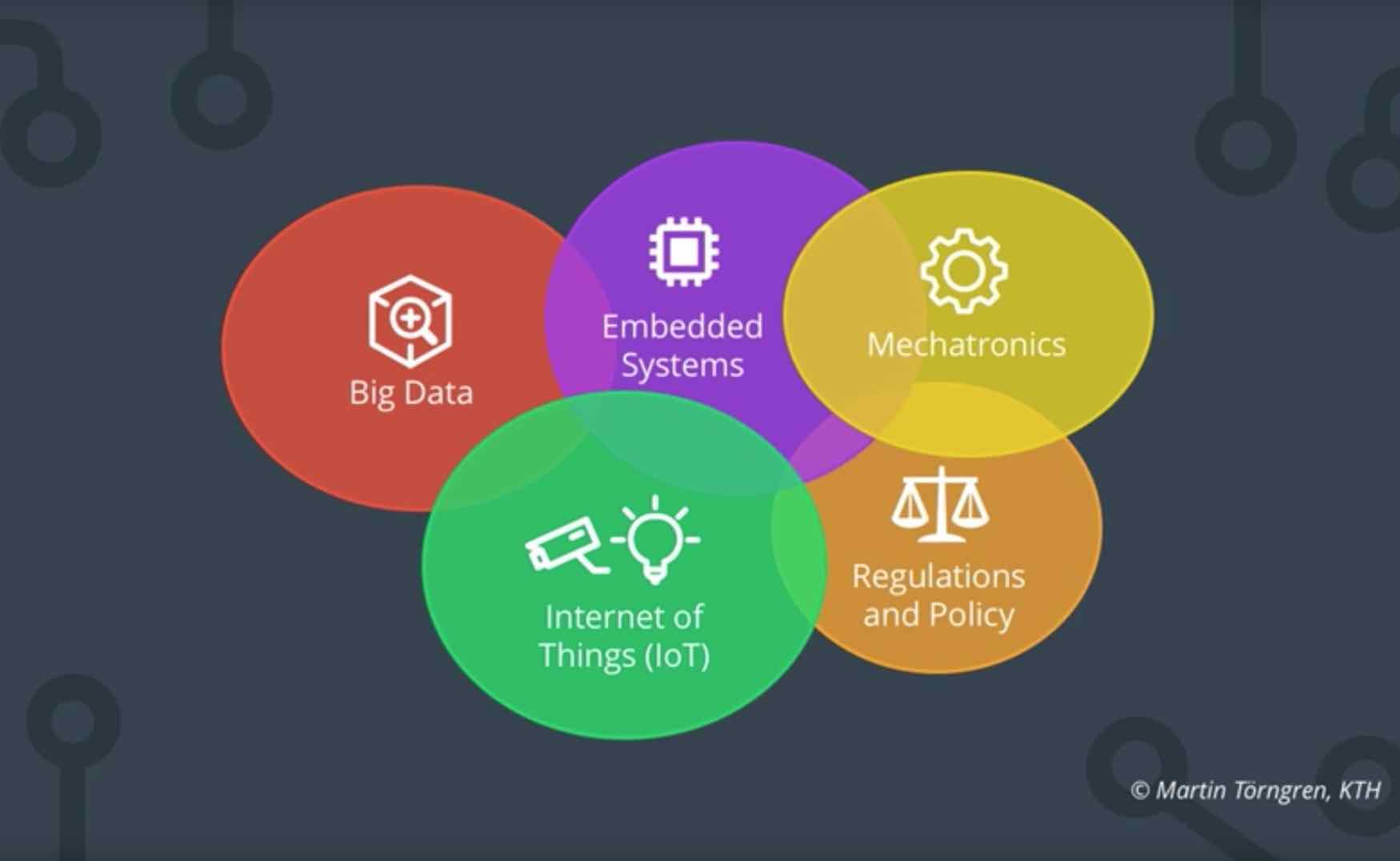Bruno Santos recently landed a graduate role as an Autonomous Engineer after enrolling in the Robotics Software Engineer Nanodegree program. He was able to move from Portugal to the UK to take up the role, and loves the work he does everyday. It is the happy conclusion to a career journey in which Bruno pursued physics, then data science, before deciding neither field was what he truly wanted to do. It was only when he found robotics that he knew he’d found a subject he felt really passionate about—one where he could go beyond theory to build real projects.

We spoke with Bruno to hear how he took what he learned in his Nanodegree program and turned it into his new career.
Wonderful to speak with you today Bruno. Can we start start by hearing about your background?
I studied physics at university back home in Portugal. I got interested in computer science while I was still studying, because I realized I didn’t want to keep getting further and further into physics research as my career. Computer science really appealed to me, but it took some time to work out what I really wanted to do. I started with an internship doing Java development, then went on to learn about Business Intelligence and analytics, and got a job as a consultant working with data. But I still felt I wasn’t on the right path.
It sounds like you got a lot of early experience learning about what you didn’t want in a job. How did you start identifying a career path that really appealed to you?
I started to look at other options, try them out, and find things I felt passionate about. So I tried a few online courses in programming, including some free Udacity courses, which introduced me to machine learning. I really liked that subject because it was a combination of math and physics, and it also required programming skills. It was something I was really keen on, and it encouraged me to look at all the other high-tech career options out there.
And is that when you discovered robotics was something that really appealed to you as a potential career?
Yes, that’s when I saw the Udacity Robotics Engineer Nanodegree program. It just sounded so cool! My Master’s studies had been really theoretical, and what I wanted to work on was projects where I could produce something real and see the result. I loved that robotics would involve reading about the subject, then actually implementing what I learned.
While you were still enrolled in your program, you managed to land a really exciting internship opportunity. Can you tell us how that came about?
It was really because I was studying my Nanodegree program that I was able to get an internship offer, working with computer vision on different projects. It was so important as a learning experience, and I got in because I was able to show that I was building knowledge of deep learning and computer vision in my program. I did the internship for around six months, while I kept studying in my program. Then I started applying for full-time roles and got invited to interview with a robotics company in the UK.
That’s fantastic! Tell us about your interview experience. Were there parts of your background that you think particularly impressed your recruiters?
I shared a lot of what I’d learned in my Nanodegree program during my interview. also liked the mixture of experience I had—with my background in physics, and my internship in computer vision. And they were impressed that I’d committed to learning something new on my own—that was a really powerful thing.
And what happened next?
I got the job—a full-time graduate position as an Autonomous Engineer! And it’s in the UK, in Oxford, so I got to move countries to start the role. I’m working for a robotics company, working on different projects—including working on implementing path planning algorithms using SLAM [Simultaneous Localization and Mapping] and LiDAR.
So you’re applying the skills you built in your Nanodegree programs in your work?
Yes, for sure. I’m working with C++, and I work a lot with ROS. So the skills I built in the program were definitely valuable. It was a great starting point for my knowledge and skills, so that now I can quickly get up to speed with a new project, and progress much faster in my development.
Now that you’ve been in your new role for a number of months, do you feel you’ve found a career path that really suits you?
I do! I’m really thankful for Udacity. Without it, I wouldn’t have learned about ROS, about Computer Vision, and about machine learning. And there are several tools I got real experience with that enable me to pick up other robotics topics far quicker now. It means I’m really able to enjoy my career. It’s something I’m really passionate about—I always want to learn more about this area and I definitely feel I’m on the right path now.
˜
Congratulations on your new role Bruno! It’s so great to hear that you’ve found your true career path, and that the skills you learned have equipped you to make an immediate impact in your current role.
To start your own career journey in robotics, take a look at Udacity’s Robotics Software Engineer Nanodegree program today. Enroll during our New Year promotion and get 10% off using the code NY2019!







